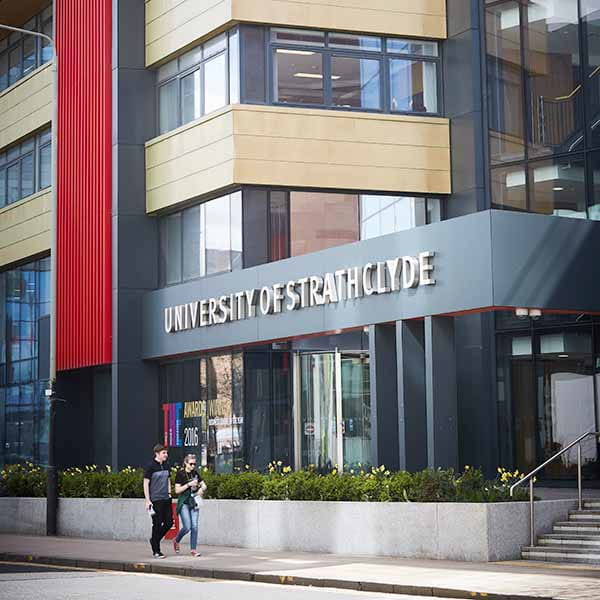Practice of Telecoms Regulation & Governance
ApplyKey facts
- Accreditation: triple-accredited Business School - AACSB, EQUIS, AMBA
Study with us
This course will help you:
- be familiar with the common practices related to telecom regulation and governance
- critically analyse and evaluate the validity of best practices recommended by international organisations and academic literature
- self-reflect on practices of decision-making
- demonstrate the ability to apply conceptual frameworks to everyday practices
- appreciate the contextual and institutional factors surrounding independent regulatory agencies
Practice of Telecoms Regulation & Governance is delivered by Strathclyde Executive Education & Development.
Why this course?
The aim of this course is to introduce you to the practices of telecom regulators for enhancing your decision-making efficiency and accountability.
The course is designed to provide you with analytical tools to understand the interactions between regulators and other institutions forming the contemporary telecom governance systems (also in developing countries). The international dimension of telecom regulatory governance is also taken into account.
Unlike other courses on the subject, the course is not a mere overview of concepts and theories of regulation but provides a coherent framework for understanding regulatory practices through the lenses of organisational design and policy evaluation.


What you'll study
The telecom regulatory governance practices are examined in relation to:
- institutional and organisational features of independent regulatory agencies (IRAs). Specifically, we aim to answer the following questions:
- Why and how telecom regulators are independent?
- How much can they do in autonomy? And what explains the variation of their autonomy?
- What institutional and organisational forms IRA usually take?
- Practices of accountability, looking specifically at the IRAs’ accountability to parliament, to the executive, and to the general public.
- Evaluation and performance of IRAs. The following questions will guide this topic:
- How are telecom regulatory agencies evaluated?
- What makes an independent regulatory agency effective in regulating the telecom market?
- What are the best practices of “good” IRAs’ conduct and good governance standards to avoid revolving doors and regulatory captures, as promoted by the OECD and the World Bank?
- Focusing on good governance tools such as regulatory impact assessment, competition assessment, consultation and public participation, we will answer the question of how telecom regulatory agencies make decisions.
• International regulatory networks:- How do regulatory networks work, and what are their characteristics and rationales?
- Are they an effective way to solve transboundary problems and share experiences?
This course is worth 20 credits at SQCF Level 11, upon successful completion of the assessment.
Course structure & dates
Depending on demand, this course can be delivered in person at the University of Strathclyde or online only.
Course dates will be confirmed once an adequate number of applications have been received. If you are interested in taking part in this course, please do not hesitate to submit an application.
Strathclyde Business School
Strathclyde Business School holds triple accreditation from three main business school accreditation bodies - AMBA, EQUIS and AACSB. The school has been recognised for the outstanding support it has given to Scottish businesses, particularly in innovation and leadership. This is demonstrated through the school being the first in Scotland to be awarded the Small Business Charter Award.
Course instructor
Dr Fabrizio de Francesco
Fabrizio is a Senior Lecturer in Public Policy at the School of Government and Public Policy, University of Strathclyde. Since 2012, he has been teaching policy analysis and theories and practices of regulatory governance. By applying quantitative and qualitative methods, Fabrizio has a strong research interest in assessing how institutional design and settings impact public administration and regulatory governance. He also focuses on how international organisations as knowledge institutions are able to frame and promote policy innovations and administrative reform. His research on regulatory issues (such as digital miscommunication) and institutions, the diffusion of administrative reforms, and transnational and sustainable development goals governance has been published in three books and several journals such as Comparative Political Studies, Journal of European Public Policy, Governance, Policy Studies, Public Administration, Socio-Economic Review and Sustainable Development. Fabrizio has been the principal investigator or co-investigator of three large research projects and visited the University of Lausanne, Heidelberg, Leiden and Luxembourg.
Before joining academia, Fabrizio gained extensive experience as a research consultant for private companies and Italian national and regional public authorities. During his PhD study at the University of Exeter, he worked as a full-time researcher on several projects on regulatory quality and policy appraisal funded by the European Commission, the World Bank and the UK Economic and Social Research Council. He has extensive experience in governmental projects on the implementation of regulatory impact assessment in Italy and the European Union.
Fees & funding
Fees may be subject to updates to maintain accuracy. Tuition fees will be notified in your offer letter.
All fees are in £ sterling, unless otherwise stated, and may be subject to revision.
Annual revision of fees
Students on programmes of study of more than one year (or studying standalone modules) should be aware that the majority of fees will increase annually. The University will take a range of factors into account, including, but not limited to, UK inflation, changes in delivery costs and changes in Scottish and/or UK Government funding. Changes in fees will be published on the University website in October each year for the following year of study and any annual increase will be capped at a maximum of 10% per year.
| All applicants | £2,250 |
|---|
We will accept a credit card payment, or if preferred an invoice can be issued.
Apply
Please note that this course is included as a module on the wider MSc Communication, Technology Policy & Strategy, but can be taken as a single course for CPD (Continuing Professional Development) purposes. This course is worth 20 credits at SQCF Level 11, upon successful completion of the assessment.
Applications for both the wider MSc and the Practice of Telecom Regulation & Governance course are accepted via the same application link.
If you would like to take part in either option, then please complete an application. Someone from our team will then be in touch to confirm course dates and your preferences.
.

